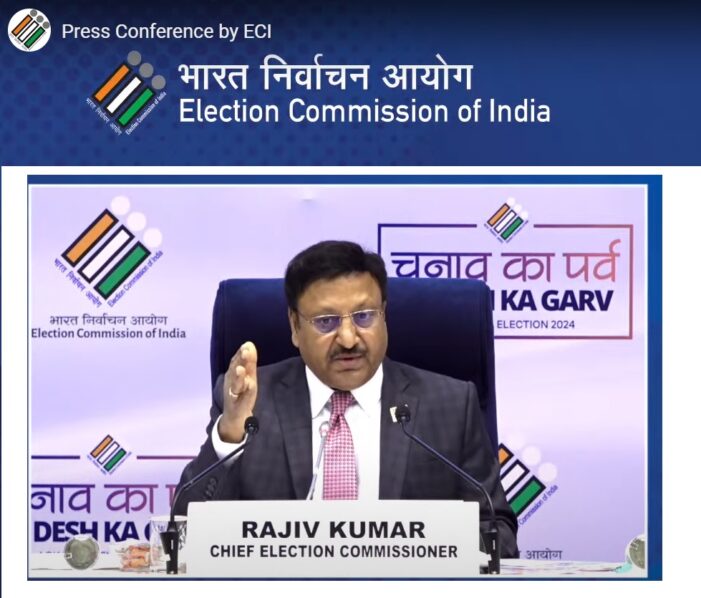The Election Commission of India announced the schedule for the 543 parliamentary constituencies for the 18th Lok Sabha elections, marking the commencement of the world’s largest democratic exercise encompassing 96.8 crore voters, including 21.5 crore young voters aged between 18 to 29 years.
Additionally, the election schedule for four state assemblies was announced, comprising Sikkim (32 seats), Arunachal Pradesh (60 seats), Andhra Pradesh (175 seats), and Odisha (147 seats).
Polling in Arunachal Pradesh and Sikkim in the Northeastern region is slated for April 19, while Andhra Pradesh will witness elections on May 13. Odisha’s elections will be conducted over four phases on May 13, May 20, May 25, and June 1, with results declared on June 4, coinciding with the announcement of Lok Sabha poll results.
The Lok Sabha elections will unfold across seven phases, commencing on April 19 and concluding on June 1.
Additionally, by-elections for 26 Assembly seats in Bihar, Gujarat, Haryana, Tripura, Telangana, and Tamil Nadu will be held. The Model Code of Conduct has been enforced with immediate effect, following the announcement.
Chief Election Commissioner Rajiv Kumar, accompanied by newly appointed Election Commissioners Gyanesh Kumar and Sukhbir Singh Sandhu, declared that the elections will span seven phases, mirroring the pattern from 2019.
Spanning from April 19 to June 1, the elections will unfold across 10.5 lakh polling stations, with vote counting scheduled for June 4. The phases are scheduled as follows: April 19 (Phase 1), April 26 (Phase 2), May 7 (Phase 3), May 13 (Phase 4), May 20 (Phase 5), May 25 (Phase 6), and June 1 (Phase 7).
The current term of the 17th Lok Sabha concludes on June 16. Despite widespread anticipation, the Jammu and Kashmir Assembly elections have not been synchronized with the parliamentary elections, possibly due to security concerns in the region.
The Supreme Court has directed that elections for the Union Territory of Jammu and Kashmir must be completed by the end of September.

